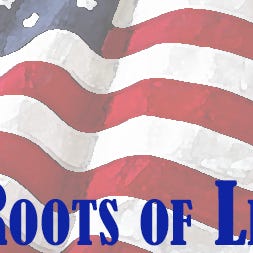A common style of attack against libertarianism involves questioning how a “libertarian world” would handle a particular difficult situation. While it is legitimate and beneficial, when theorizing about the mechanics and minutiae of libertarianism (something that many libertarians would much rather do than discuss the real world), to contemplate how core principles apply to particular situations, the attack form of this line of questioning is mostly straw-man gamesmanship. The attacker isn’t interested in the answer, but instead looking to reject any liberty-forward remedy to that problem. Inevitably, specific circumstances that don't produce an ideal answer within a rule set can be fabricated, no matter what the rule set is. The straw-man nature of this lies in deriding an entire philosophy based on an imperfection without considering the overall benefits provided by that philosophy.
AKA a variant of the Nirvana Fallacy.
Illegitimate as such attacks are, they nevertheless are, as I noted, rather common. To understand why this is so, we need to consider the parenthetical I noted above i.e. that many libertarians would rather spend their time delving into the theoretical workings of a libertarian or anarcho-capitalist society than discussing how to fit libertarian ideas into existing society or incrementally move society in a more-liberty direction. The big libertarian think tanks do a good job of addressing the latter, but many individuals who put forth their opinions on the Net argue for purity and against any compromise of ideals, no matter that the former is never going to happen and the latter might move matters in the right direction. Thus, the common joke that libertarians love nothing more than denouncing each other as “not real.”
I’ve certainly witnessed my share of “you’re not a true libertarian” attacks.
While it's tempting to consider that the majors i.e. Democrats and Republicans, liberalism and conservatism, don't have to deal with purists the way libertarians do, there are certainly some within those ranks who hold fast to their own purist and absolutist positions. Purists embrace their purism and routinely deride those who would compromise if it meant furthering the overall cause. Dogmatic adherence to principle is portrayed as difficult and noble, given that the adherent is standing tall against slings and arrows. Martyrdom for a good cause is widely admired.
But, is martyrdom in political belief much of a challenge? Is it really that difficult and painful to be a hard-line ideologue? Sure, many people will say bad things about the ideologue and call him names, but wouldn't that be the case no matter what political opinion he espouses? Isn’t suffering verbal slings and arrows actually empowering to those embracing the martyr’s righteousness?
Hard-line purism is easy, especially in that it so often includes the premise that it'll never be achieved. This absolves the purist from actually having to do any work, from having to figure out how to move in the direction of that so-desired pure political state. The latter is what's truly difficult, and it's where the heavy lifting takes place in the libertarian world. Libertarian groups like Cato, Mercatus and the Reason Foundation devote effort to policy analysis and commentary and offer up prescriptions for moving the nation and the world in the direction of liberty. Liberty-loving individuals can and should do the same. Rather than demand the world be miracled into their vision of what it should be and deride anyone who isn't as steadfast and unmoving in principle as they are, they should devote efforts to achieving greater liberty, in bits and pieces, step by step. Rather than saying "I want this and until it happens I'll sneer at everything," they should say "I want this, so lets do that and the other thing in order to get us closer to this." A to B, with the devil in the details.
Rooting one’s self in an ideologically consistent philosophy is a good thing. It anchors ideas, promotes rational analysis and fosters coherence of thought. But, if purity itself becomes paramount, if it becomes more important to be unassailable in one's adherence to the philosophy than to work in pursuing it, then it becomes little more than onanism. It's asking to be magically teleported into some shangri-la where the hard work and heavy lifting have already been accomplished. Apart from being completely unrealistic, it ignores the transition. It ignores the A to B. Yes, knowing what B is supposed to look like is important. How we travel in that direction is even more important, as is the realization that we're not going to actually get there. The real focus for liberty lovers should be the journey, not the destination.
A version of this article was originally published at The Roots of Liberty June 2015.
If you enjoy The Roots of Liberty, please subscribe (if you have already, thank you!), and please recommend the blog to your friends! While I share it as much as I can on social media, subscribing ensures you won't miss a post.
If you really like The Roots of Liberty and want to help keep it rolling, please consider becoming a paying subscriber here at Substack, or at a lighter level as contributor to the blog via Patreon.
Thank you for your support!
Yours in liberty,
Peter.





“I’ve certainly witnessed my share of “you’re not a true libertarian” attacks.” AMEN!